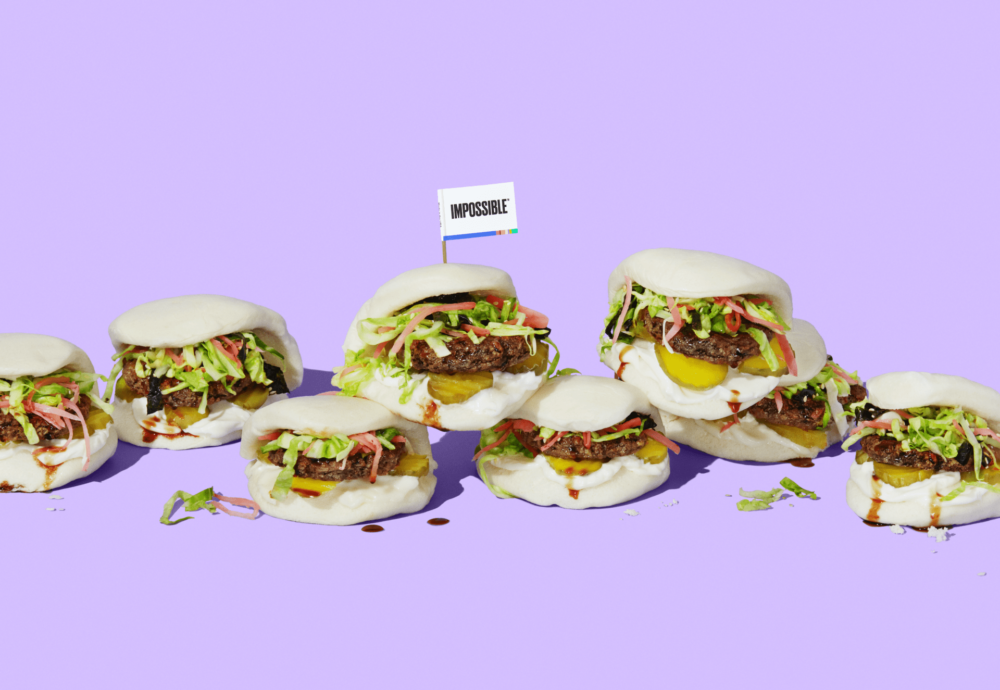Impossible Foods has raised an additional $200 million in Series G funding, with new investor Coatue Management leading the round.
Coatue was joined by fellow New York-based hedge fund XN, which has secured $1 billion in committed capital for its maiden vehicle, while South Korea’s Mirae Asset — which had led Impossible Foods’ $500 million Series F round in March — also participated.
Singapore sovereign fund Temasek, an existing investor, completed the line-up. The company did not share any valuation figures, but confirmed it has raised close to $1.5 billion in total funding since it launched in 2011.
As for how it plans to deploy the capital, Impossible Foods said much the same as it did for its Series F. It’ll use the funds for research and development, product development and commercialization, and to further upscale its manufacturing capacity, the company said in a statement.
Given the smaller size of this round compared to the previous two, some observers may surmise that Impossible Foods is beginning to run out of steam. But by bringing yet another big-name backer on board in Coatue — and with both Mirae Asset and Temasek upping their skin in the game — the plant-based protein maker still has plenty to be happy about.
For one thing, Covid-19 appears to have had a positive impact, at least in part, on the burgeoning alt-protein industry. The pandemic is widely believed to have been zoonotic in origin; influenced by this, people the world over are becoming more switched on to the idea of reducing their intake of animal-derived food products. On Impossible’s home soil in the US, almost a quarter of consumers said they were eating more vegan foods since the outbreak began, according to one survey.
When the worst of Covid-19 hit the US in March, the startup’s flagship Impossible Burger patty was available in 150 grocery stores nationwide, having made its retail debut in September 2019. According to the company, it’s now on sale in over 8,000 grocery stores across all 50 states.
The trend towards plant-based protein consumption was already on the up prior to Covid-19, however. A Gallup poll in January found that four in 10 Americans had eaten plant-based alt-meat.
Given the apparent increase in interest, Impossible Foods quadrupled production at its plant in Oakland, California, last year and entered a wide-ranging partnership with Illinois-based food manufacturer OSI Group.
In March, it said it would cut prices for US distributors that purchase its plant-based products by an average of 15%, and asked them to pass on the reduction to restaurants in an effort to be more price competitive with animal meat. In June, it launched its own e-commerce portal, enabling direct-to-consumer sales in the US.
And then there’s Asia. While Impossible products have been available to diners in Hong Kong, Macau, and Singapore for some time, the Californian startup has its sights set on the region’s larger consumer markets.
“We have focused our international expansion primarily in Asia so far, because [it] represents more than 40% of the global demand for animal meat,” a company spokesperson previously told AFN.
The company will invest some of its Series G capital into “increasing its retail presence and its availability in key international markets,” it said in its statement.
Impossible’s most visible rival, NASDAQ-listed Beyond Meat, recently announced it will begin retail sales in China after striking a deal with Alibaba-owned supermarket chain Freshippo. It had earlier partnered with Starbucks, Kentucky Fried Chicken, Pizza Hut, and Taco Bell outlets in the country to offer menu items containing its plant-based ‘meat.’
Got a news tip? Email me at [email protected]





